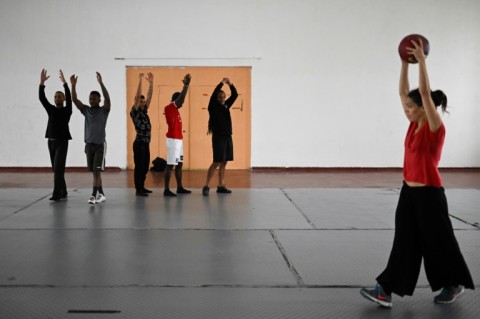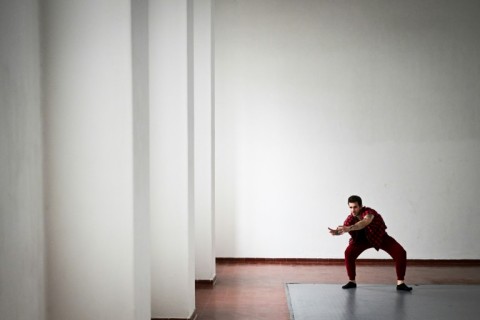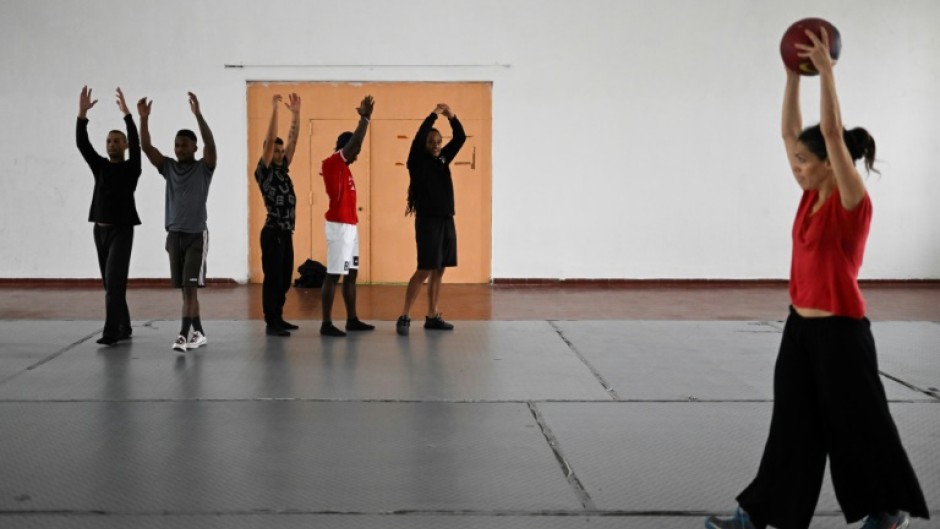Dance classes give hope to Portuguese prisoners

LISBON - Inside a high-security Portuguese prison, six inmates are moving gracefully around in a series of improvised dance moves, clutching props and following the rhythm of the music.
Outside, the high walls of Linho prison in the western suburbs of Lisbon are lined with barbed wire and a loudspeaker barks instructions for prisoners in a metallic voice.
But in the contemporary dance studio, in a converted former chapel, inmates are dancing freely to classical music with an object of their choice: a scarf, ball, plastic bags or a light bulb.
"Dance -- with poetry!" calls out the teacher, 47-year-old dancer Catarina Camara.
She hopes the classes -- part of a social dance project that began in April 2019 -- can help change the mindset of some of the young prisoners.

There are around 500 prisoners in Linho, many of them young men who have committed serious offences and been handed sentences of 15 years or more.
Around a dozen are now taking part in the dance project.
"It would be very naive to say that artistic practice saves people," Camara tells AFP.
"But art, combined with other factors, can be decisive in changing someone's life."
She says many of the prisoners are "boys who grew up on the street and who had to fend for themselves very early."

The results have been positive beyond the direct impact of the classes too, according to prison director Carlos Moreira.
Prisoners participating in the dance project are "more tolerant towards others" and less likely to breach prison rules, he says.
Camara hopes that because "dance offers this experience of freedom", it can help the men "prepare for the space of freedom" they will find on their release from prison.
The dancers are now preparing for their own show inside the prison.












